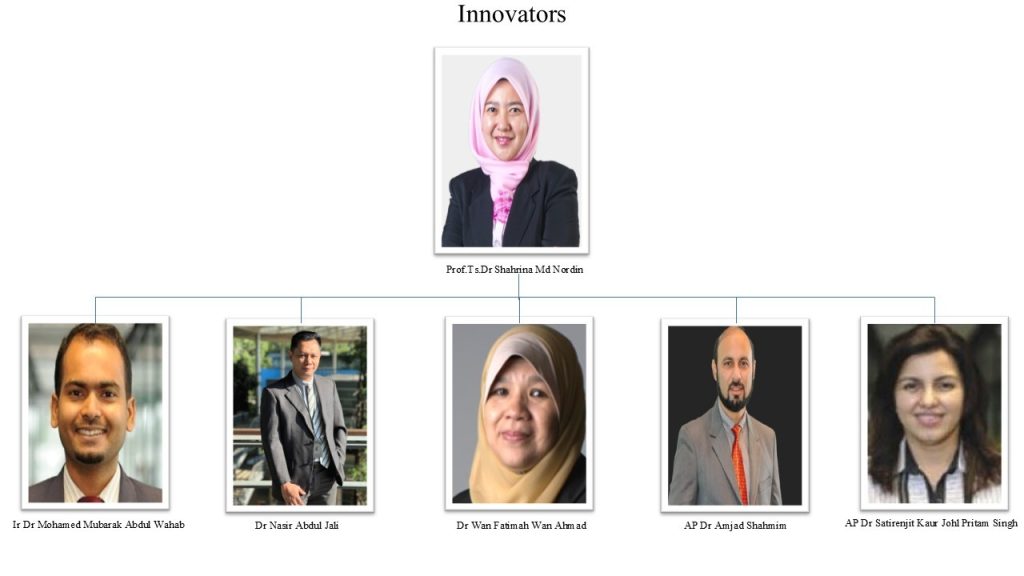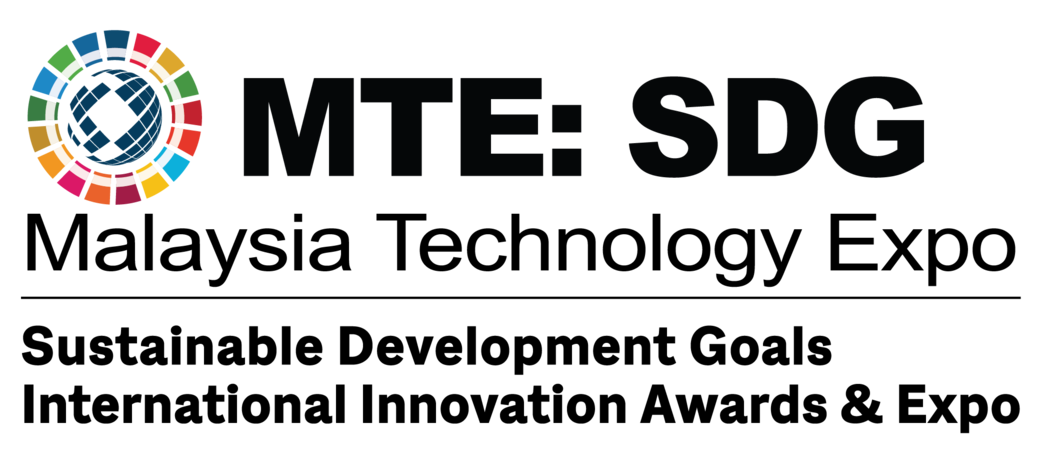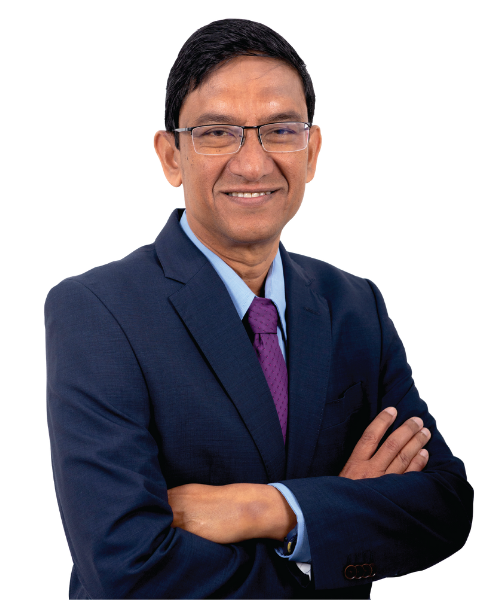Towards Uplifting Lives Program (TULiP)
1. What inspired you to create this innovation, and what was the initial spark behind it?
The inspiration for producing Adan Arabica Coffee stemmed from efforts to help the Lun Bawang community in Long Sukang Central at Lawas to create their own product. Lawas is an area with an absolute poverty rate of 14.4%, according to the Household Income and Basic Amenities Survey Report by the Sarawak State Department of Statistics 2019. It was found that 30% of the Lawas community are interested in entrepreneurship, as several small businesses have already been established. Lawas is also known for its agricultural products such as Arabica coffee and “Adan Rice.” Based on the results from CNA, the Lun Bawang community has a low household income. Although many programs have been initiated involving the Sarawakian community, these programs have yet to reach the highland areas of Lawas. Hence, the idea to produce Adan Arabica Coffee emerged as an effort to improve the income and well-being of the community by providing comprehensive and sustainable benefits. Moreover, the Lawas community has an old story where, in the past, they desperately wanted to drink coffee, but there was none available, so they would fry or roast their own.
2. How does your innovation directly contribute to global sustainability efforts?
The innovation from the Towards Uplifting Lives Program (TULiP), which includes the production of Adan Arabica Coffee, Arabica Coffee Beans, and White, Black, and Red Adan Rice, can directly contribute to global sustainability efforts by addressing several Sustainable Development Goals (SDGs). First, end poverty in all its forms everywhere. The production of LINAWA products promotes skill development and entrepreneurship in order to provide secure income for neglected communities. Community projects relieve poverty by providing both immediate help and long-term solutions. The second goals are ending hunger, achieve food security, improved nutrition, and promote sustainable agriculture. LINAWA promotes environmentally friendly agricultural strategies that increase productivity while conserving resources. The initiative teaches farmers how to use new, climate-resilient crop management approaches to increase yields in the future as well. Third, ensure healthy lives and promote well-being for all at all ages. The LINAWA products have several distinctive features. Adan Arabica Coffee combines the unique aroma and taste of “Adan Rice” and Arabica coffee beans, providing a unique coffee-drinking experience while being rich in dietary fiber and antioxidants. Roasted Arabica Coffee is known for its balanced flavor profile, smooth texture, high dietary fiber content (47.3%) that aids digestion, and high antioxidant activity (over 70%). The “Adan Rice” LINAWA range includes white, black, and red rice, each offering unique benefits such as high carbohydrate and protein content, along with dietary fiber that supports digestive health. All these products are pesticide-free, organically sourced, and produced by the Lun Bawang community in the highlands of Lawas, ensuring the best quality and freshness while supporting the local economy. The next goals are to promote sustained, inclusive, and sustainable economic growth, full and productive employment, and decent work for all. Our main target is to increase employability of youth to create job opportunities and to increase the income level of the communities there. We can’t be with the communities forever. So, for every of our grassroot social innovation, what we also have developed is an Exit Plan upon monitoring we will let them go and grow independently. In addition, another goal involved is to reduce inequality within and among countries. We understand that we can reduce inequality within our country. This is evident from how a small village is capable of producing its own local products. Examples of the local products they produce include coffee and rice, which are widely sold in major markets such as Mesra and mini Mesra outlets. we are also working to include products in other small outlets in the future. We also promote LINAWA products on various social media platforms and online including Instagram, TikTok, Facebook and YouTube and Shopee through the official account, “linawahq”. Therefore, we can improve the standard of living for the community residing in this area by providing them with products that are competitive in larger markets. Last but not least, the last goal is to strengthen the means of implementation and revitalize the global partnership for sustainable development. We successfully structured a large organization to manage this business, known as Koperasi Long Sukang, located in Lawas. This cooperative was established in collaboration with the communities in Long Sukang. A general meeting with the Suruhanjaya Koperasi Bahagian Limbang and cooperative members was held on January 24, 2022, where the official name of the cooperative, Koperasi Usahama Long Sukang Sentral Lawas Berhad, was decided. During this meeting, the cooperative’s by-laws were also formalized. Additionally, the details of the cooperative’s income streams were outlined, focusing primarily on agriculture and transportation as its main sources of revenue. In addition, we are now in the midst of applying for Mesti and Halal Certificate so that it will be easier for them to go into a national level market in future. Finally, Inclusivity as a Core Value where TULiP is founded on inclusivity, which ensures that underprivileged and underserved communities are fully integrated into the project. The program values variety, involving men, women, youth, and seniors from various socioeconomic backgrounds in important positions along the value chain. LINAWA develops a sense of shared ownership, pride, and collaborative achievement by providing fair access to resources, skills, and opportunities, ensuring that no one falls behind on the path to sustainability.
3. How did you navigate the challenges you faced during the project’s development?
Throughout the project’s development, we faced several significant challenges that required strategic problem-solving and adaptability. First, the remote location of the project presented difficulties with road access, as the road conditions were often poor, making it challenging to transport resources, personnel, and equipment. To address this, we carefully planned logistics, utilizing local transportation options where possible and scheduling deliveries during optimal weather conditions. Another challenge was the inconsistent supply of Arabica coffee from the small, local coffee farm. Due to seasonal variations and limited production capacity, we worked closely with the farmers to establish a more reliable supply chain, diversifying sourcing options and introducing buffer stock strategies to manage fluctuations. The lack of reliable network signal in the area posed communication difficulties. To overcome this, we implemented alternative communication method to ensured regular in-person meetings to maintain smooth coordination among the team and stakeholders. Finally, organizing community gatherings proved difficult due to logistical issues such as limited transportation options and challenging terrain. Despite these constraints, we overcame the hurdle by coordinating small, localized gatherings that were easier to access, while also leveraging technology to facilitate virtual meetings when necessary. This approach helped us maintain strong community engagement despite the physical barriers.
4. What role does collaboration play in scaling your innovation for larger impact?
This project involved collaboration with Yayasan Hasanah and Petronas which is the main funder of this project and followed by Peduli Insan, MARDI, WihHin Machinery, Suruhanjaya Koperasi and GIATMARA as well. We aim to establish a macro business by introducing a signature product based on Arabica Coffee and Adan Rice shall be marketed as Linawa Coffee which is formulated prototype coffee collaboratively developed by UTP and MARDI. From our market research, we know that there is an established market for the newly formulated coffee and adan rice. Hence this project will allow the community to tap into this market to generate income for themselves. The project shall also look into market penetration at local and national market. Our approach to this project is through a Quadruple Helix Model that allows several parties (government, NGOs, and corporate industries) to work hand-in-hand with these communities to allow ease in upscaling and implementing their grassroots innovation (signature products based on community sourced ingredients) that allows them to generate income for their communities. Resulting from the previous CNA, there are three (3) potential products which are Adan rice, Arabica Coffee and formulated Arabica coffee with Adan rice. The production process will be operated by the Koperasi. Peduli Insan on the other hand will help to position the products, develop marketing strategies on social media and conduct promotions of the products. We are able to provide opportunities to continue talent development through GIATMARA technical training from 5 branches; Limbang, Lawas, Miri, Saratok & Baram. There are about 22 individuals who graduated from training in GIATMARA. The courses involved are Welding Technology, Automotive, Building Technology and lastly, Fashion & Clothing. Most of them are currently working at industrial companies such as Hong Seng, Sin Wie Motor Part and SKH Welding. For the production machines, we purchased are primarily from Win Hin Machinery, our supplier vendor. The list of machines purchased is Sealer, Cooker, Grinding, Vertical Packaging Machine (Sachet), Digital Scale, Dehulling, Generator and Roasting. However, we also invited them to participate as collaborators in our CSR project, where they are providing technical training to the villagers. Win Hin Machinery sent technician for installing and training local community about the machines handling.
5. How do you see your innovation impacting communities or industries in the future?
LINAWA has a positive impact on the local community by promoting economic development through its flagship products such as “Adan Rice” and “Adan Arabica Coffee.” This not only opens up new market opportunities but also increases the economic income of the local community by commercializing unique and high-quality traditional agricultural products. The project plays an important role in strengthening local cultural identity and heritage. By promoting and preserving the Linawa motif art in its products, LINAWA not only honors its heritage but also introduces the cultural richness of the community to a wider audience. LINAWA contributes to enhancing the skills and abilities of local residents through various training and skill development programs. These include entrepreneurship, technical, and social engineering training, which help improve the employability of youth and empower individuals to start small businesses. With a strong focus on environmental sustainability and organic farming practices, LINAWA also helps protect the local environment. This brings long-term benefits to the community by ensuring the sustainability of natural resources and maintaining a healthy environment for future generations. LINAWA not only brings economic benefits but also social benefits to the local community. Through various social entrepreneurship initiatives, the project fosters holistic growth and social harmony among local residents. Overall, LINAWA is not just a business venture but a catalyst for sustainable community development, aiming to create a lasting positive impact on the local community.
6. Are there plans for expanding the reach of your innovation to underserved areas?
Yes. If we look at the beginning of LINAWA project, it was actually carried out in underserved areas which is the part of area that lacked services, such as the indigenous community living near the Sabah – Sarawak Gas Pipeline (SSGP) facilities in Lawas which have fulfilled basic needs which is water and electricity during Phase 1 completion. Furthermore, The LINAWA project has brought numerous benefits to the Long Sukang Cooperative in various aspects. Some of the key ways this project has supported the cooperative include economic improvement. The LINAWA project has helped boost the income of the Long Sukang Cooperative through the sale of LINAWA products, providing a sustainable additional source of revenue for the cooperative. Next, through skill and knowledge enhancement, the training and workshops organized have equipped cooperative members with improved skills in production, marketing, and business management, making them more competent and competitive. Additionally, the LINAWA project has opened access to broader markets for the cooperative’s products, including efforts to feature these products in Mesra, Mini Mesra, and other small outlets in the future. Furthermore, through this project, the Long Sukang Cooperative has established collaborations with various parties, including corporate partners and social enterprises. This has built a strong network and opened new opportunities for future cooperation. Lastly, infrastructure development, including the establishment of a production house and the installation of production machinery, has increased the cooperative’s production capacity, enabling them to produce more efficiently and in larger quantities. In these undeserved areas, we achieved all the objectives, which are:
- To develop production house refurbishment for the production of Beras Adan, formulated Arabica Coffee and roasted Arabica Coffee
- To conduct product packaging and branding for the production of Beras Adan, formulated Arabica Coffee and roasted Arabica Coffee
- To conduct market penetration, distribution and commercialization for the production of Beras Adan, formulated Arabica Coffee and roasted Arabica Coffee.
- To conduct the seed fund disbursement & agreement signing for entrepreneurship programme on the 3 products above.
- To continue talent development technical training.

7. What role do you think industry support plays in fostering sustainable solutions?
From my opinion, industry support plays an integral role in funding the development of new sustainable technologies, practices, and innovations. Companies can allocate financing to R&D projects that investigate renewable energy, green materials, efficient industrial methods, and carbon capture technology. Sustainable solutions frequently necessitate significant investment to transition from prototype to market-ready products. Industries have the financial resources and infrastructure to support the commercialization of new sustainable solutions. If we look at supply chain integration, Industries can use responsible sourcing procedures to ensure that raw materials are obtained in a sustainable manner, such as utilizing recycled materials or ensuring that supply chains do not contribute to deforestation and environmental deterioration. Regarding to policy and advocacy manner, we can see many industries collaborate with governments, non-governmental organizations (NGOs), and academic institutions to develop and implement sustainable practices. These collaborations can improve the efficacy of sustainability projects. In addition, since sustainability is becoming more and more important to investors, employees, and consumers, several industries have made it a central component of their brand identities. Public commitments to environmental responsibility can enhance a company’s reputation, attract investments, and build trust with consumers. As a conclusion, industry support is essential for accelerating the transition to a more sustainable future. It combines financial resources, technological competence, market reach, and policy influence to drive long-term, systemic change. Industries have an important role in crafting a more sustainable society, whether via direct investments in innovation or by creating a business environment that prioritizes sustainability.
8. How has the MTE platform helped in promoting your innovation?
The Malaysia Technology Expo (MTE) platform has played a significant role in promoting innovations by providing an avenue for inventors, entrepreneurs, researchers, and businesses to showcase their technologies and products to a wide audience. How the MTE platform helped in promoting our innovation is by brings together a wide range of industry experts, researchers, investors, and government authorities. This opens up opportunities for innovators to develop crucial partnerships, collaborations, and business contacts that will help them bring their ideas to market. The event also allows innovators to interact directly with companies, customers, and other key stakeholders that are interested in implementing new technology or solutions.
9. What advice would you give to other innovators working towards sustainability solutions?
Because of sustainability solutions frequently have wide-ranging effects, it’s critical to take the system as a whole into account. Analyse how your ideas affect other processes and look beyond immediate solutions. Seek solutions that support longer-term, more comprehensive sustainability objectives in addition to addressing particular issues. Think about how each innovation will affect the economy, society, and environment. The next point that can be discussed is about collaborate and build networks that is essentials to working towards sustainability solutions in future. Governments, corporations, researchers, and local communities are just a few of the many stakeholders who must contribute to the complicated issues surrounding sustainability. Engage to others who have different perspectives to make sure your approach is workable, scalable, and fair. By working together, you can have access to the networks, resources, and expertise that can increase the impact of your idea. Another point that can be discussing is about recognition and awards. MTE organizes awards to highlight excellent innovations. Winning or being selected for such awards can boost credibility, accessibility, and market interest in a product or technology.
10. Looking back on your journey, is there anything you would have done differently?
Looking back on my journey, I am deeply grateful for the opportunities to contribute to sustainability, innovation, and social impact at local, national, and international levels. If there is one thing I might have done differently, it would be to dedicate even more time early in my career to grassroots engagement and community-driven projects. While I have had the privilege of working closely with diverse stakeholders, including indigenous communities in Sarawak and global networks like APEC and YSBC, I have realized how pivotal early and direct community insights are in shaping effective, inclusive solutions. This reflection has further strengthened my commitment to ensuring that technological advancements and policy frameworks are deeply rooted in the lived experiences of the people they aim to serve. Every step of my journey, including areas for growth, has been a valuable learning process, equipping me to better bridge innovations with meaningful societal outcomes.
Innovators: Prof. Ts. Dr Shahrina Md Nordin
Organisation: Institute of Smart & Sustainable Living (ISSL)
Email: shahrina_mnordin@utp.edu.my





